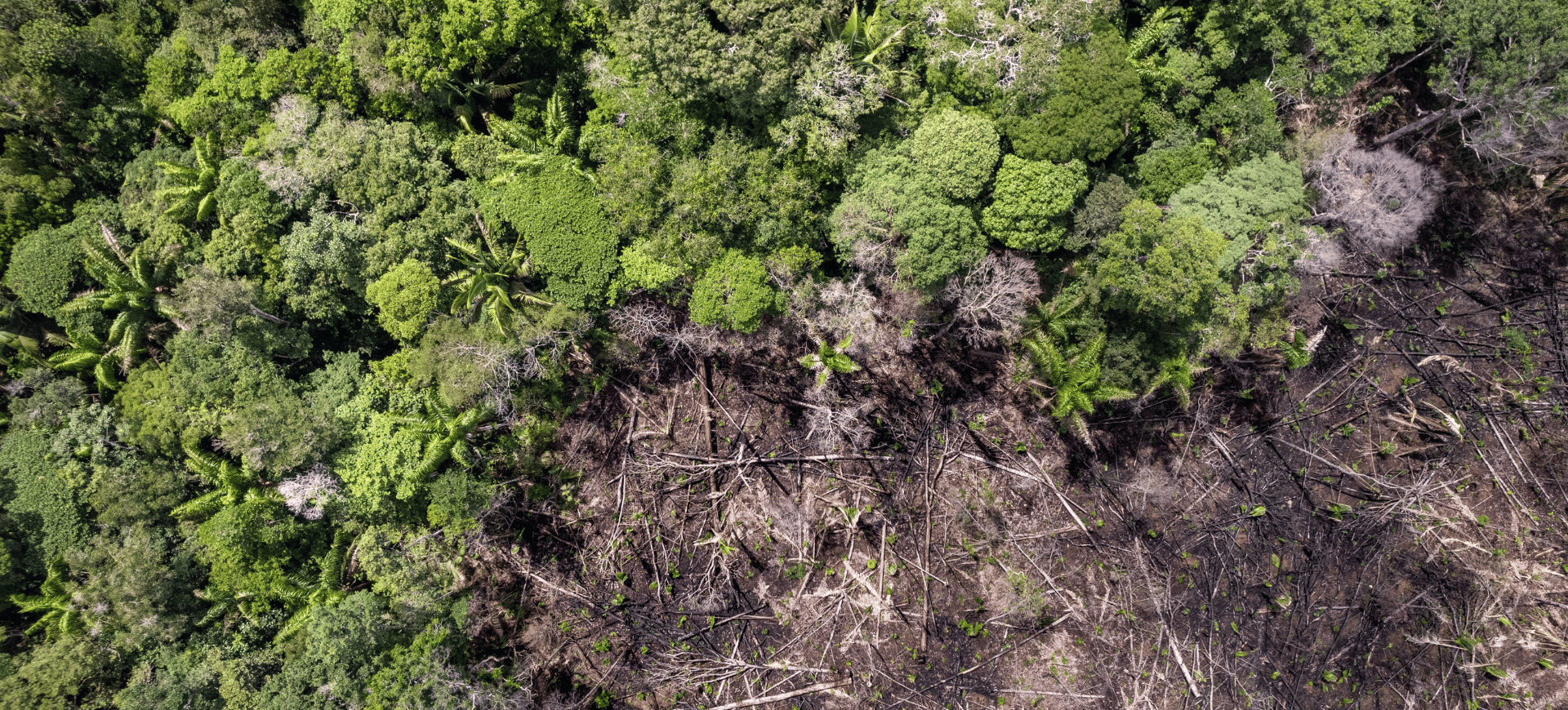Can we build our resilience by rebuilding trust in nature?
The degradation of our natural environment is often directly linked to today’s most pressing societal issues. We must invest in nature as a prevention measure
In today’s world, our resilience – whether national, societal or individual – is constantly tested by an array of challenges, from climate crises to disease outbreaks and natural disasters. A closer look at these shocks often reveals a common thread: the degradation of our natural environment and the loss of biodiversity. Yet numerous studies demonstrate that the opposite is also true – healthy, thriving ecosystems can be powerful allies in reducing risks and enhancing resilience. Whether through supporting adaptation to climate change or helping to prevent disease outbreaks, nature is a critical player in building our resilience.
During the Covid-19 pandemic, when social interactions were limited, many people turned to nature for solace and well-being. Parks, forests and green spaces became essential refuges for physical activity, mental health and reconnecting with ourselves. This shift highlighted nature’s significant role in our lives. But when modern society is put to the test, can we afford to continue treating nature as merely a fallback plan? Or is it time to rebuild trust in nature’s direct benefits to human health and invest in conservation as a preventive measure?
The intersection of health and nature
The World Health Organization defines health as “a state of complete physical, mental and social well-being and not merely the absence of disease or infirmity”. This comprehensive definition underscores the need for robust healthcare systems and access to services. However, it also highlights the importance of preventive measures – where stronger partnerships between the public health sector and the conservation community can play a pivotal role.
While the links between biodiversity, climate change and human health have been well documented, integrating these findings into mainstream policy and practice remains a challenge. Public authorities, as signatories to various international conventions on biodiversity and environmental protection, must take the lead in fostering cross-sectoral collaboration. This means uniting stakeholders from biodiversity conservation, climate change adaptation and public health to create a holistic approach that addresses the root causes of health risks and promotes a ‘prevention is better than the cure’ philosophy.
Nature-based solutions for a healthier future
The International Union for Conservation of Nature’s work across the globe provides compelling evidence of how conserving nature can directly contribute to human health and well-being. For instance, in Africa, our research shows that soil erosion can lead to a staggering 4,000-fold increase in the cost of water treatment, placing immense pressure on communities reliant on these water sources. The ripple effects of environmental degradation are profound, exacerbating health issues and limiting access to clean water. Similarly, soil erosion in East Africa has resulted in significant sedimentation in water bodies, disrupting aquatic ecosystems and posing severe health risks.
Moreover, IUCN’s work in regions such as Southeast and Central Asia emphasises the interconnectedness of human, animal and environmental health. Through improved management of protected areas, enhanced disease reporting mechanisms and strengthened commitments to One Health approaches, we are addressing health threats that arise from livestock, wildlife and ecosystem degradation.
In urban spaces, particularly in Europe, our initiatives have consistently demonstrated how biodiversity contributes to the mental and physical well-being of city dwellers. Green spaces, urban parks and natural landscapes are not just aesthetic features; they are vital to the health and happiness of people living in cities.
A call to action: investing in our collective future
Since its founding in 1948, IUCN has been a pioneering force in biodiversity conservation, working across sectors to promote sustainable development. Our Nature 2030 Programme reflects the growing recognition of the intrinsic link between biodiversity and health, driving efforts to integrate conservation strategies into public health planning. This includes mitigating the risk factors for zoonotic diseases, which, as Covid-19 has shown, have the potential to cause global pandemics.
Nature-based solutions offer a promising pathway to preventing future health risks associated with environmental decline. These solutions address multiple crises – such as climate change, biodiversity loss, and food and water insecurity – by working with nature to enhance resilience. Protecting intact ecosystems not only is more cost-effective than restoring degraded areas but also safeguards the health and livelihoods of local communities.
The demand for IUCN’s engagement in the health sector has steadily increased, prompting the launch of the Health Initiative for the Union. It aims to leverage partnerships both within and outside IUCN to drive policy convergence between nature conservation and health both nationally and globally. By catalysing joint action on the ground and mobilising financing, IUCN seeks to create synergies between biodiversity and health actors, fostering a common agenda that prioritises nature as a foundation for health.
As a science-driven, intergovernmental and membership-based organisation operating in over 150 countries, IUCN is ready to accelerate and scale up a common agenda on biodiversity and human health. We call on leaders and stakeholders from the health sector to partner with us in this critical endeavour. By investing in nature, we invest in our collective future. It is time to take action to safeguard the health and well-being of present and future generations.
The challenges we face today are complex and multifaceted, but by rebuilding trust in nature, we can build a more resilient future. Our work at IUCN demonstrates that nature is not just a passive backdrop but an active participant in addressing the world’s most pressing issues. As we look to the future, let us remember that by investing in nature, we are investing in our own well-being. Together, we can create a healthier, more resilient world for all.












